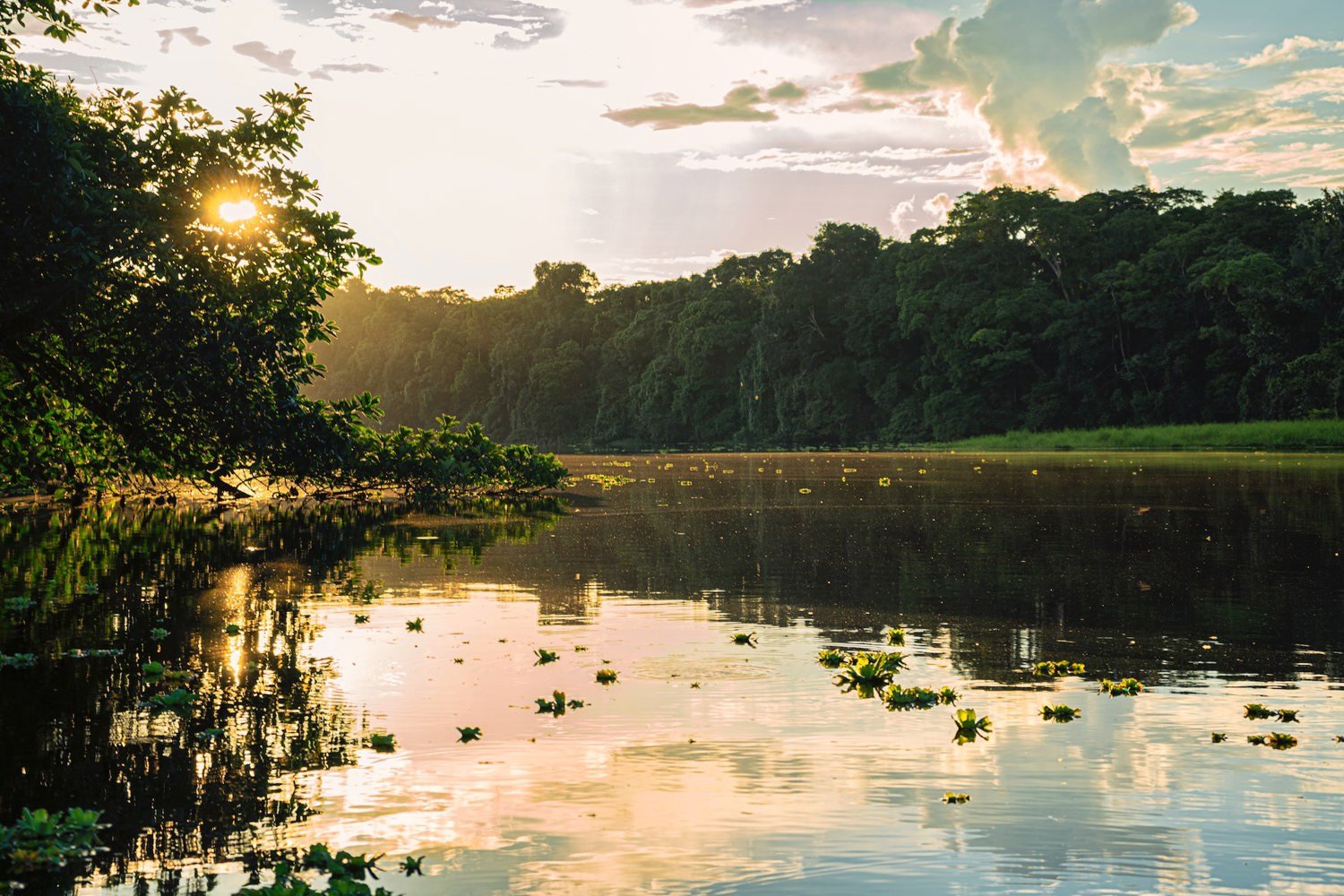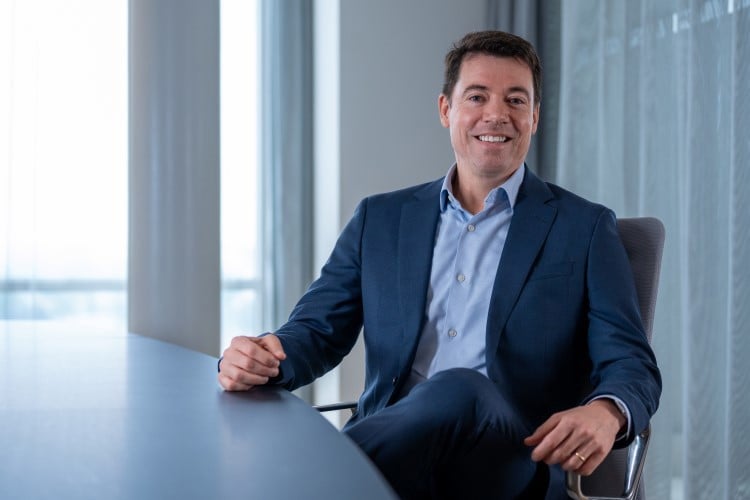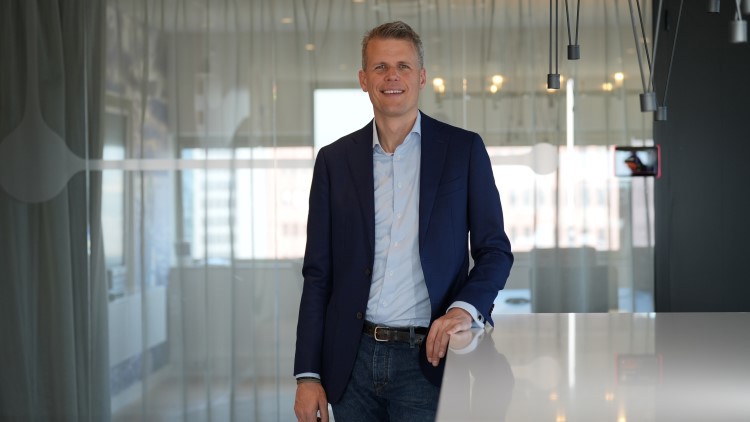The publication features insights from industry leaders such as Cargill, Bayer, and Nutreco, discussing their advancements and strategies. Trouw Nutrition CEO, Eduardo Alberto, and Nutreco Director of Sustainability, Robert van den Breemer, emphasised our commitment to sustainable animal nutrition and highlighted our innovative approaches to global food security and supply chain efficiency.
Global fight against hunger requires innovation
Het Financieele Dagblad, the leading Dutch financial newspaper targeting business professionals and decision-makers, recently published the June 10th edition of their "Agri & Food" supplement. This issue explores sustainable farming, food technology innovations, climate change impacts, and consumer trends towards organic and local products.

With over a century of experience, Nutreco is a global leader in livestock feed through its Trouw Nutrition business line, and in aquaculture feed through its Skretting business line. It has around 11,000 employees in over 40 countries. Nutreco’s vision is to be the leading partner in nutritional and functional solutions for sustainable farming.
According to the United Nations*, approximately 2.4 billion people worldwide (which accounts for an estimated 29.6% of the global population) were moderately or severely food insecure in 2022. This number has increased by 391 million since 2019. Additionally, about 9.2 per cent of the world population was facing chronic hunger, equivalent to about 735 million people – 122 million more than in 2019.These figures highlight the urgent need to address food security challenges and ensure access to safe, nutritious, and sufficient food for all.

We are passionate about our purpose of Feeding the Future. With our customers, we need to meet the growing demand for high-quality protein and do it in a way that is good for our planet. There are many challenges to be tackled, including emissions, antimicrobial resistance and food waste. These require innovative solutions and collaboration across the full feed-to-food chain.
Meeting the challenges requires companies to be transparent about their impact and the Corporate Sustainability Reporting Directive is helping. We took a step towards greater transparency putting our sustainability data, stories and policies on our website, making the most up-to-date information accessible anytime.
Eduardo Alberto - Trouw Nutrition CEO
Given our purpose, sustainability sits at the heart of our strategy, and is integrated into how we work. While reducing our own impact is our priority, we also work to reduce the impact of our value chain, both upstream, choosing suppliers with a lower impact, and downstream, bringing innovative feeds to market that help farmers produce more with less.
We believe our industry needs to focus on efforts to reduce scope 1 and 2 emissions. To lead by example, we have implemented a new emissions reduction plan to ensure we can meet our SBTi target of 30% CO2-emissions reduction by 2030. We understand that scope 3 is the major bottleneck for emissions in the feed and food industry, but if everyone across the value chain works on scope 1 and 2, it will make a difference.
Clearly, the largest steps towards sustainable animal protein production can be made by utilising the genetic potential of animals. One example is our focus on launching novel, effective and proprietary solutions that help animals reach this full potential. We’ve previously pursued growth through acquisition, research and development, but recognised we needed to take a more transformative approach, looking for solutions to farmers’ unmet needs. So, in 2021, we created Nutreco Exploration which feeds the innovation groups of Selko, Skretting and Trouw Nutrition with ultra specialities: high-value, science-based solutions to industry challenges.
Within Nutreco Exploration, we have two programs: a Phytotechnology program harnessing the power of the plant kingdom to develop Phyto-complexes, or plant metabolites, and a Microtechnology program mining the function of the microbiome to develop Biome-actives, or gut bacterial functions. When added to feed, these support animal performance, health and welfare. In June 2024, we celebrated the opening of Nutreco’s Garden of the Future, bringing all our phytotechnology activities under one roof.
Health and welfare are at the core of everything we do and are areas where we can make a big difference, together with our customers. Helping to ensure animals are raised with optimal nutrition and good welfare is essential for Feeding the Future and can even have a significant impact on human health.
An example is Skretting’s work to develop dedicated feed for Recirculating Aquaculture Systems (RAS) – designed to optimise performance of these systems without compromising fish performance. Skretting launched the first RAS feed and continues to pioneer advancements.
An increasingly urgent issue facing our industry is antimicrobial resistance, expected to be the main cause of death globally by 2050. We are collaborating with stakeholders to eliminate the use of antibiotic growth promoters, and working to help producers use antibiotics more responsibly through our integrated feed-farm-health approach.
Robert van den Breemer - Nutreco Director of Sustainability

And today, around one-third of food produced is lost in the food chain. We are working towards a sustainable, circular food system by supporting the use of food industry coproducts as a nutritious source of energy for animals. Products like our Selko Revalet line help the challenge of maintaining by-products’ nutritional value and quality for use in feed.
While we remain fully committed to supporting animal and aquaculture farmers, we know our industry must maximise all protein sources to feed the growing global population. This includes novel non-animal-based sources. We have partnered with alternative protein start-ups and are pursuing supplying the cell-based protein industry with the right media.
In all our efforts, the common theme is collaboration – Feeding the Future and building a sustainable food system requires cooperation across the entire value chain. We invite you to join us on the journey!
Media contact
